 The Glass City Sky Bridge in Toledo. (The tall bridge). Five construction workers lost their lives in separate incidents during the five year building period.
The Glass City Sky Bridge in Toledo. (The tall bridge). Five construction workers lost their lives in separate incidents during the five year building period. Riverfront restaurants which play music well into the night.
Riverfront restaurants which play music well into the night.On the night of the 4th, Allen and I took Blue Girl out on the Maumee River in Toledo to watch the fireworks. I'm not really a fireworks sort of person, but I enjoy being an observer and particularly enjoy the lull that happens when the fireworks are over. This is the second year in a row we've taken the boat out to watch the fireworks.
We like to stay late into the night putting up and down the river, watching stray fireworks and listening to the music coming from the waterfront restaurants. Last night we laughed that after a certain hour the oldies music gave way to the "Chucka, chucka, chucka" of rap and similar youth oriented sounds. Ah to have the young blood that can party all night. I wouldn't use it to party, though, but to read and write. I've never been a party girl, nor a fireworks girl, but I do miss being able to pull those all night study and writing sessions without the kind of ramifications I face now.
The best, though, is gliding out of town on the black water. Last night the water was so calm it was like glass. That's not the most creative simile I could have used, but none other seems closer to the truth.
It was a chilly evening, and, like last year, I longingly watched a camp-like fire flaring on shore. I like the feeling of moving in and out of the bounds of "civilization." You can't call it wilderness, but it is away from the crowds. We didn't take the boat out of the water until nearly 3 a.m.
Of course, I took my thoughts about the documentary The Bridge with me, and I felt a little more melancholy than usual. I snapped a photo of the Glass City Sky Bridge which was just recently completed. Five construction workers died during the building of that bridge. On a river, bridges are everywhere and death is everywhere.
I am trying to piece together why this documentary has affected me so. Of the two of us, Allen is usually the one most greatly affected by tragedy in films. Sometimes he even has to stop watching a film all together. I attribute this to the fact that he's seen a great deal of tragedy close up, such as when he was hospitalized on Okinawa and saw many severely wounded American soldiers from the Vietnam battlefields. So Allen prefers happy movies. I'm the one who's always been drawn to the dark subjects.
I think the effect The Bridge has had on me has something to do with how I react to the threshold between life and death. It is a place of great tension for me, of great mystery. I'm less interested in what happens after death than in that moment between. Now there is life. The person has thoughts, memories. The person loves. The person has animation, a personality, a soul. Now life is gone. Where did all that go?
One of my favorite Walt Whitman poems is "The Last Invocation":
At the last, tenderly,
From the walls of the powerful, fortress'd house,
From the clasp of the knitted locks,
From the keep of the well closed doors,
Let me be wafted.
Let me glide noiselessly forth;
With the key of softness unlock the locks, with a whisper,
Set ope the doors, O Soul!
Tenderly! be not impatient!
(Strong is your hold, O mortal flesh!
Strong is your hold, O Love.)
I love the image of the body as a house. Death comes not as a terrifying presence but "with the key of softness." Death is pleasantly anticipated, greeted openly, as in this, another of Whitman's works ("The Unknown Region"):
Darest thou now O soul,
Walk out with me toward the unknown region,
Where neither ground is for the feet nor any path to follow?
No map there, nor guide,
Nor voice sounding, nor touch of human hand,
Nor face with blooming flesh, nor lips, nor eyes, are in that land.
I know it not O soul;
Nor dost thou, all is a blank before us,
All waits undream'd of in that region, that inaccessible land.
Till when the ties loosen,
All but the ties eternal,
Time and Space,
Nor darkness, gravitation, sense, nor any bounds bound us.
Then we burst forth, we float,
In Time and Space O soul, prepared for them,
Equal, equipt at last, (O joy! O fruit of all!) them to fulfil O soul.
Here, death equips the soul to enjoy unlimited freedom. And, finally, in his poem "To All, To Each" Whitman sees death as simply a new birth:
Come lovely and soothing death,
Undulate round the world, serenely arriving, arriving,
In the day, in the night, to all, to each,
Sooner or later, delicate death.
Prais'd be the fathomless universe,
For life and joy, and for objects and knowledge curious;
And for love, sweet love - But praise! praise! praise!
For the sure-enwinding arms of cool-enfolding Death.
Dark Mother, always gliding near, with soft feet,
Have none chanted for thee a chant of fullest welcome?
Then I chant it for thee - I glorify thee above all;
I bring thee a song that when thou must indeed come, come unfalteringly.
Approach, strong Deliveress!
When it is so - when thou hast taken them, I joyously sing the dead,
Lost in the loving, floating ocean of thee,
Laved in the flood of thy bliss, O Death.
From me to thee glad serenades,
Dances for thee I propose, saluting thee - adornments and feastings for thee;
And the sights of the open landscape, and the high-spread sky, are fitting,
And life and the fields, and the huge and thoughtful night.
The night, in silence, under many a star;
The ocean shore, and the husky whispering wave, whose voice I know; And the soul turning to thee, O vast and well-veil'd Death,
And the body gratefully nestling close to thee.
Over the tree-tops I float thee a song!
Over the rising and sinking waves - over the myriad fields, and the prairies wide;
Over the dense-pack'd cities all, and the teeming wharves and ways, I float this carol with joy, with joy to thee, O Death!
I'm sorry that I can't show you on Blogger exactly how the lines are supposed to be. I love the way Whitman breaks his lines. This is perhaps the most complete poem of Whitman's regarding his thoughts on death.
Look at the last three lines: they positively "send" me: "Over the rising and sinking waves--over the myriad fields, and the prairies wide;/ Over the dense-pack'd cities, all, and the teeming wharves and ways, I float this carol with joy, / with joy to thee, O death!"
It's a bit like Allen and I in our boat, floating away from the heart of Toledo, into the quiet where we could enjoy our own thoughts, experiencing the death of our social selves and a renewal of our deeper selves. This experience is indeed a "carol" that we move towards "with joy."
Any reader can see by now where I'm going with this. Those people standing on that bridge, thinking of jumping, watching the "rising and sinking waves." Is this what they were thinking?
That death was a gentle and welcoming place, release from all burdens and troubles?
If so, why does the young survivor in The Bridge say that his one thought on the way down to the water was that he wanted to live?
Whitman wrote, "Strong is your hold, O mortal flesh!" And this is what moves me about Whitman's poems and about The Bridge. The struggle between the flesh and the soul. That threshold, that place.
But Whitman's poems are not suicide poems.
And here I've got to stop because I can't process any more of this right now. I've got to think more about this, and yes, all the while remain haunted by The Bridge.



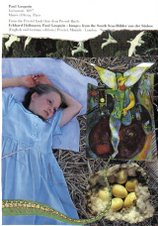


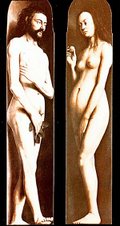

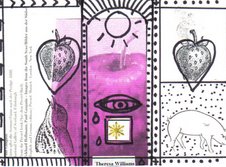
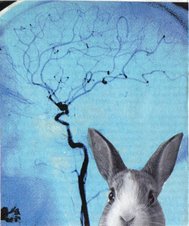
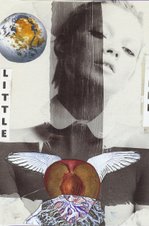
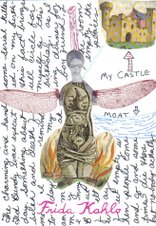
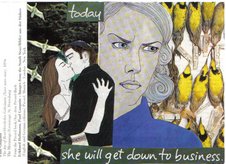

2 comments:
Your 4th on the water sounds heavenly, esp. compared to mine--watching fireworks on TV alone while my kids went out with friends. Love the poems, and the bridge program sounds compelling in a dark way. How close can we come to the edge and what brings us back? Teagrapple
This is beautiful, Theresa. Having grown up on the Mississippi, I always wanted to watch fireworks from the river, but I never have.
I think I'm going to buy a copy of The Bridge, because I want to see it, and yet I find myself resisting doing that because I'm sure it will move me, and perhaps take me to a place I'd rather not go. I believe that many people who choose to end their lives do so because they are in deep despair, exhausted, and cannot see a way out, or if they see it, are too exhausted to believe it's attainable. I like Whitman's idea of death as a new birth, and that's how I explained death to each of my children, when they were young and asked me about death, because it's how I see it. I told them that they were alive before they were born, alive inside me, but with a world very different from the world they were eventually born into, and maybe we are like that...maybe we pass into something that we cannot imagine. Or maybe not, of course. Maybe one reason the jumpers wish they were back on the rail is that they still had a choice before them on the rail; choices are something in the past the moment the feet leave the rail...and it's very human to want to have choices.
Post a Comment